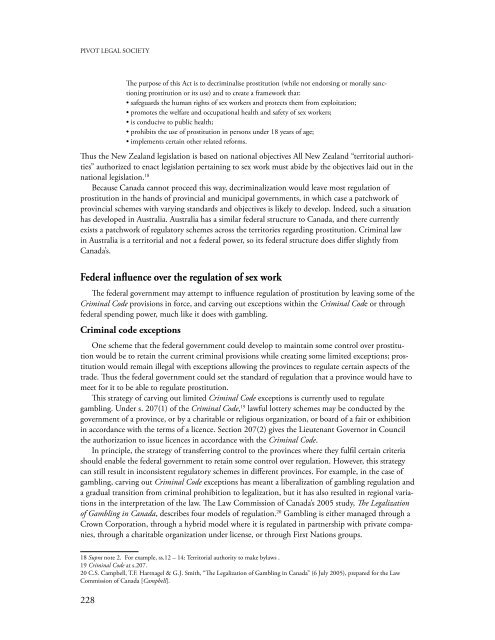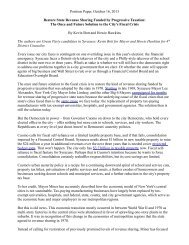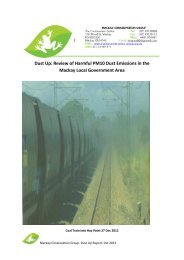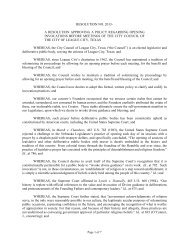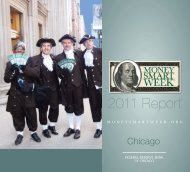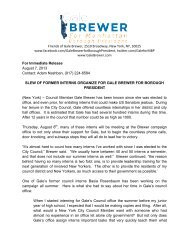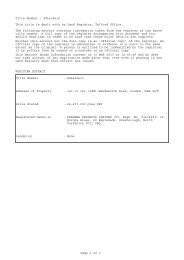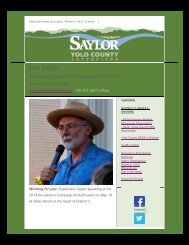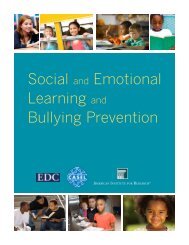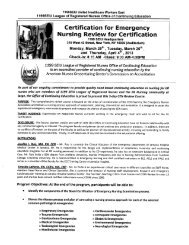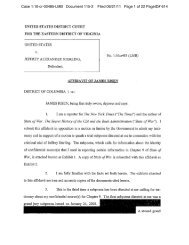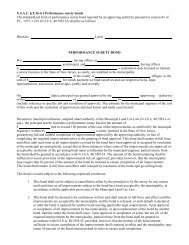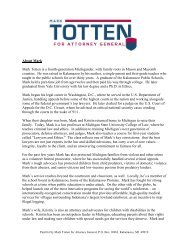Beyond Decriminalization: Sex-work, Human Rights and a New ...
Beyond Decriminalization: Sex-work, Human Rights and a New ...
Beyond Decriminalization: Sex-work, Human Rights and a New ...
- No tags were found...
You also want an ePaper? Increase the reach of your titles
YUMPU automatically turns print PDFs into web optimized ePapers that Google loves.
PIVOT LEGAL SOCIETYThe purpose of this Act is to decriminalise prostitution (while not endorsing or morally sanctioningprostitution or its use) <strong>and</strong> to create a frame<strong>work</strong> that:• safeguards the human rights of sex <strong>work</strong>ers <strong>and</strong> protects them from exploitation;• promotes the welfare <strong>and</strong> occupational health <strong>and</strong> safety of sex <strong>work</strong>ers;• is conducive to public health;• prohibits the use of prostitution in persons under 18 years of age;• implements certain other related reforms.Thus the <strong>New</strong> Zeal<strong>and</strong> legislation is based on national objectives All <strong>New</strong> Zeal<strong>and</strong> “territorial authorities”authorized to enact legislation pertaining to sex <strong>work</strong> must abide by the objectives laid out in thenational legislation. 18Because Canada cannot proceed this way, decriminalization would leave most regulation ofprostitution in the h<strong>and</strong>s of provincial <strong>and</strong> municipal governments, in which case a patch<strong>work</strong> ofprovincial schemes with varying st<strong>and</strong>ards <strong>and</strong> objectives is likely to develop. Indeed, such a situationhas developed in Australia. Australia has a similar federal structure to Canada, <strong>and</strong> there currentlyexists a patch<strong>work</strong> of regulatory schemes across the territories regarding prostitution. Criminal lawin Australia is a territorial <strong>and</strong> not a federal power, so its federal structure does differ slightly fromCanada’s.Federal influence over the regulation of sex <strong>work</strong>The federal government may attempt to influence regulation of prostitution by leaving some of theCriminal Code provisions in force, <strong>and</strong> carving out exceptions within the Criminal Code or throughfederal spending power, much like it does with gambling.Criminal code exceptionsOne scheme that the federal government could develop to maintain some control over prostitutionwould be to retain the current criminal provisions while creating some limited exceptions; prostitutionwould remain illegal with exceptions allowing the provinces to regulate certain aspects of thetrade. Thus the federal government could set the st<strong>and</strong>ard of regulation that a province would have tomeet for it to be able to regulate prostitution.This strategy of carving out limited Criminal Code exceptions is currently used to regulategambling. Under s. 207(1) of the Criminal Code, 19 lawful lottery schemes may be conducted by thegovernment of a province, or by a charitable or religious organization, or board of a fair or exhibitionin accordance with the terms of a licence. Section 207(2) gives the Lieutenant Governor in Councilthe authorization to issue licences in accordance with the Criminal Code.In principle, the strategy of transferring control to the provinces where they fulfil certain criteriashould enable the federal government to retain some control over regulation. However, this strategycan still result in inconsistent regulatory schemes in different provinces. For example, in the case ofgambling, carving out Criminal Code exceptions has meant a liberalization of gambling regulation <strong>and</strong>a gradual transition from criminal prohibition to legalization, but it has also resulted in regional variationsin the interpretation of the law. The Law Commission of Canada’s 2005 study, The Legalizationof Gambling in Canada, describes four models of regulation. 20 Gambling is either managed through aCrown Corporation, through a hybrid model where it is regulated in partnership with private companies,through a charitable organization under license, or through First Nations groups.18 Supra note 2. For example, ss.12 – 14: Territorial authority to make bylaws .19 Criminal Code at s.207.20 C.S. Campbell, T.F. Hartnagel & G.J. Smith, “The Legalization of Gambling in Canada” (6 July 2005), prepared for the LawCommission of Canada [Campbell].228


